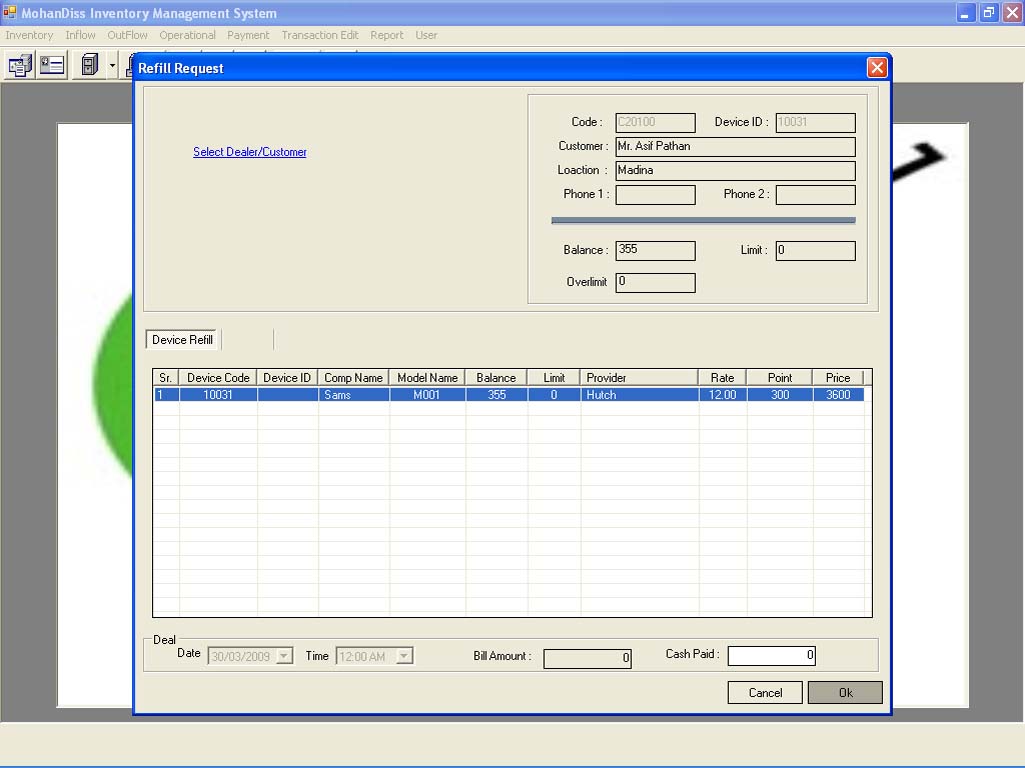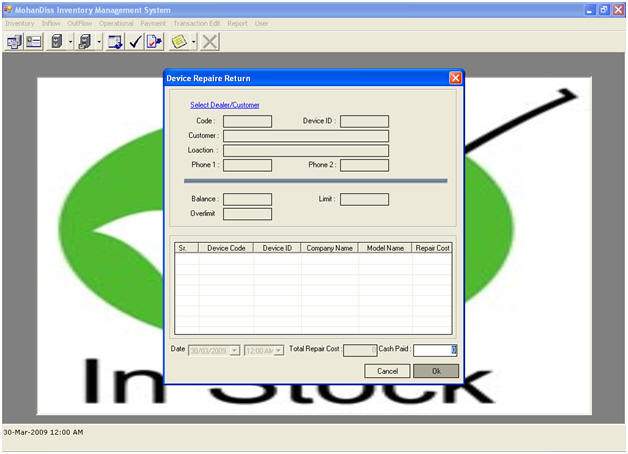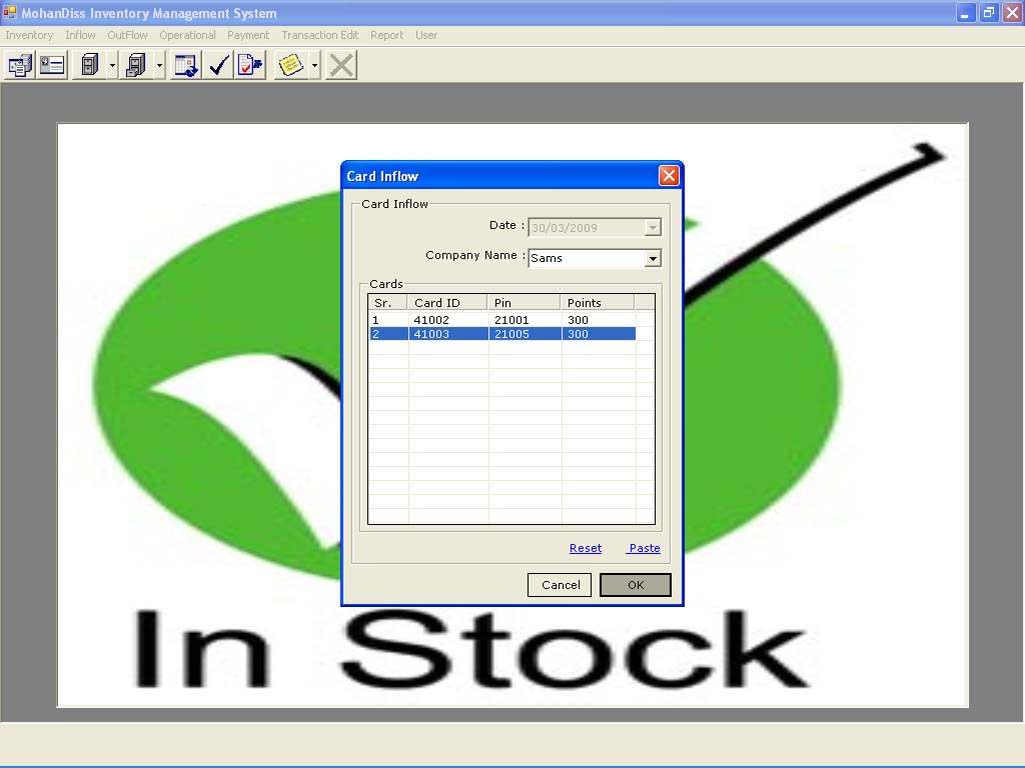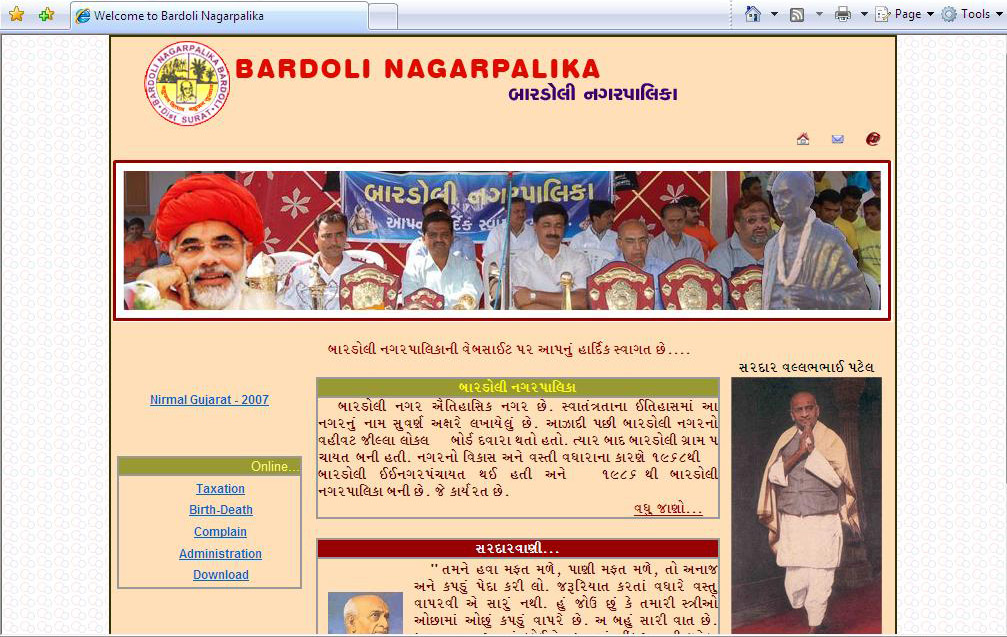HKDA-Online Examination System
It is developed by SRIMCA students Dharmendrasinh K. Mahida, Jignasa Dipakbhai Prajapati, Mohsin Hasim Mansur, Affan Ahmed Naeem Ahmed Pathan under the guidance of Mr. Lal Bihari Barik, Asst. Prof.,SRIMCA. HKDA-Online Examination System is an effort to students for the improvement in various subjects, courses and for the faculties to conduct examination, as well as get accurate reports on individual students.
Objectives
The objective of HKDA-Online Examination System is to provide best possible services to students for learning and improvement in various courses, subjects and topics. It helps individual students to set their own examination according to their interest, knowledge, preparation and many other criterias. While giving exams, students can also learn the topics immediately. System maintains individuals learning patterns and stores them in its KnowledgeBase. It helps faculties to conduct examination in such a way that they can save their time in setting and assessing questions papers, conduct examinations keeping individuals in mind and doesn't need to bother in setting the separate papers for individual students as is done by the system. Faculties get accurate results about performances of students in different examinations. System helps faculties to draw an attention in students learning capabilities, their past and present performances in particular courses, subjects or topics. Different agents are running in the background with their dedicated job who tracks different aspects of students performance like learning pattern, past behavior, personal traits and such information is stored into KnowledgeBase of the system.
System Overview
There are 3 types of users. Students (Student of an Institute or an outsider) Faculty (Full Time/ Part Time/ Others) Administrator
Administrator Module:
The administrator maintains the faculties and students. It provides various rights to individuals to
appear in examination. e.g. FYBCA students are able to appear in examination in FYBCA related
subjects and not SYBCA or other related subject. But students are able to attempt general
examinations. Similarly giving rights to individual faculty to conduct examination. In short,
Administratior determines the basic policies and code of conduct for the use of a system. System
provides various reports on students performance in different examinations and generates a report on
students Concepts, Learning Generalization,Step-by-Step Psychomotor Skills, Step-by-Step Cognitive
Skills, Thinking Skills, Critical Thinking, Problem Solving, and Decision-Making Processes, Creative
Thinking & Performance, Interpersonal & Social Skills, Attitudes, Appreciations & Values
based on their past performances in different examinations.
Faculty Module:
The faculties can manage question banks having variety and different types of questions including
single/multiple choice questions, true/ false questions, fill in the blank type of questions etc.
Faculties can prepare the scheudule , filtereing of topic, students and time and other constraints
for the exam. Faculty has rights to display result on the spot or later in the form of report. Other
users (any) can only send questions to the question bank. Apart from the traditional reports
regarding to students performance, faculties get variety of knowledge oriented reports such as
students learning pattern, weakness and interest in particular subject/topic and some of the
personal traits of the students which the particular agent of the system observes while students
give their exams.
Student Module:
Students can give various types of examinations (subject wise or general examinations). Students
belong to institute are able to manage their basic information. Exam can be conduted for a set of
subjects, or a specific subject or even a particular group of topic(s) with or without time
constraint. There is a provision for general examination that checks basic knowledge of a student
i.e. student belongs to BCA are able to appear on other topics such as management, medical,
pharmacy, English, Reasoning, Communication skills and many more. The exam offers various types of
questions such as multiple choice, single line question, fill in the blanks, true/false, options,
matching items, Extended Open-Response etc. Important point is that students can also send questions
to the question bank. It can be enhanced by inclusion of Learning Outcome Category & Assessment
Technique, Facts & Information, Concepts, Learning Generalization, Step-by-Step Psychomotor
Skills, Step-by-Step Cognitive Skills, Thinking Skills, Critical Thinking, Problem Solving, and
Decision-Making Processes, Creative Thinking & Performance, Interpersonal & Social Skills,
Attitudes, Appreciations & Values.
Advantage of new proposed system
- Students belongs to the Institute and even outside students can give this examination and improve their skills.
- This site includes the facility of giving and conducting examination online so it can save time. Apart from just giving exams online, it offers equal opportunites for online learning as well.
- Students belongs to institute are able to manage their information through system.
- Students can plan and schedule their exams keeping their knowledge, preparation and they have to appear in the regular exams also set by the faculty members.
- Students can also submit questions to question bank.
- Students can also get more information related to career, websites etc.
- Faculties can manage their question bank well.
- Faculties have enough facilities to plan an exam keeping the individual students in mind by just setting some of the policies and constraints rather having to bother at setting question papers for individual. Its automatically done by system.
- Only the faculty has rights to display result on the spot or later in the form of reports.
- The administrator maintains the faculty and student users. He provides various rights to individual student to appear in examination and faculty to conduct examination.
- System provides vast array of reports to both students and faculties.
Non-Quantifiable Benefits:
- Students belongs to the Institute and even outside students can give this examination and improve their skills.
- Expert Agent also using his cognitive to gain knowledge from Learner Agent.
- This HKDA-Online Examination System supports the security aspect like Session Tracking. In Session Tracking, when one user is logged in with his/her Userid, another user is login with same Userid then previous user's session is going to expire.
- This HKDA-Online Examination System stop Agent Facility to the User when He/she is going for Examination.
- Faculties can spend their time on other activities rather than setting and checking the question paper for Students
- Faculties can check the Students performance in examination in particular subject.
- Faculties can manage their question bank well.
- Faculties have enough facilities to plan an exam keeping the individual students in mind by just setting some of the policies and constraints rather having to bother at setting question papers for individual. Its automatically done by system.
- System can get Creative Thinking & Performance, Interpersonal & Social Skills, Attitudes, Appreciations & Values of individuals.
Conclusion
HKDA is a very encouraging effort by students and dedicated faculty members of Shrimad Rajchandra
Institute of Management for the students to learn, improve and master their skills effectively with
their own pace. Students can test them from average, normal to even broader depth by setting some of
the criterias. Students get better feedbacks by different agents of the system regarding to their
performance, weak points, skills etc. Faculties can schedule and customize exams keeping the
individual learner in mind with no extra time. System provides an easy and the best way to faculty
members to monitor the growth of the students by going through the vast array of useful reports
generated by the system. The system provides some of the powerful features which are basically not
found in traditional online examination simulators. It traps inviduals learning patterns and gives
feedback based on their performances. It sets questions automatically based on such performances
rather than randomly setting questions that is normally found in online examination simulators. HKDA
also provides enough opportunities to learn as well. HKDA is made in more generous that it can be
used in any domain at the cost of little bit configuration and tuning. The system is reviewed by
some of the industry experts and experienced academicians and has been able to win their
appreciations.
Inventory System for IP Devices
Project definition: Computerization of functionality i.e. Inventory of IP Devices, sales, purchase, stock management, card management, card refilling of device, maintenance and repair of device, return & resell of device, user management, administration & reporting. Description of major functionalities: The System incorporate computerization of functionality as follows: Inventory of IP Devices: Module incorporate functionality of Inflow and outflow of IP Devices. Also look after of sales of devices to customer and dealers. It also helps to administrator to maintain stock of IP Device. Card management: This module provide functionality to manage Inflow and outflow of cards of different companies. Device Tracking: This module incorporate functionality of refilling of devices with the points, inflow of points, group refilling to dealers. Also helps to track devices for refilling, repairing and reselling of devices. User management: Maintain various kinds of users and their rights. Administration & reporting: Various kinds of reports, which helps administrator to take decisions. Reports to track customer, dealer, superaccound and their devices & cards. Also keep track of cross check functionality for refilling.




Hospital Management System
Hospital Management System is a generic application, which addresses all the major functional areas of a modern hospital. It seamlessly integrated all major modules of a large size hospital including Patient Registration, Treatment, Out Patient and In Patient Department, Lab Investigation and Inventory. System is based on client server architecture with centralized database and multi-user environment.

Bardoli Nagarpalika Website
Shrimad Rajchandra Institute of Management & Computer Application, Gopal Vidyanagar have designed, developed in successfully implemented the website www.bardolinagarpalika.org. This certificate is awarded at the inaugural ceremony of launching of this website on 18th July 2003 at Bardoli given by honorable water supply minister Narottam Patel. The website have been developed by Associated Dr. Bankim C. Patel, Director, SRIMCA, Team Leader of the project Mr. Lalbihari Barik Asst. Prof., SRIMCA and three active and studios BCA students of B. V. Patel Inst. of Business Mgt. and Computer Applcation, Mr. Snehal Patel, Mr. Jenish Patel and Mr. Chirag Shah.
Shrimad Rajchandra Institute of Management & Computer Application, Gopal Vidyanagar have designed, developed in successfully implemented the website www.bardolinagarpalika.org. This certificate is awarded at the inaugural ceremony of launching of this website on 18th July 2003 at Bardoli given by honorable water supply minister Narottam Patel. The website have been developed by Associated Dr. Bankim C. Patel, Director, SRIMCA, Team Leader of the project Mr. Lalbihari Barik Asst. Prof., SRIMCA and three active and studios BCA students of B. V. Patel Inst. of Business Mgt. and Computer Applcation, Mr. Snehal Patel, Mr. Jenish Patel and Mr. Chirag Shah.
Using this system a citizen can know his/her duties towards his/her town, thus making a better city to live. The information given by a user for water connection, drainage connection, assessment, property transfer can be downloaded thus reliving the people from going personally to Nagarpalika.

